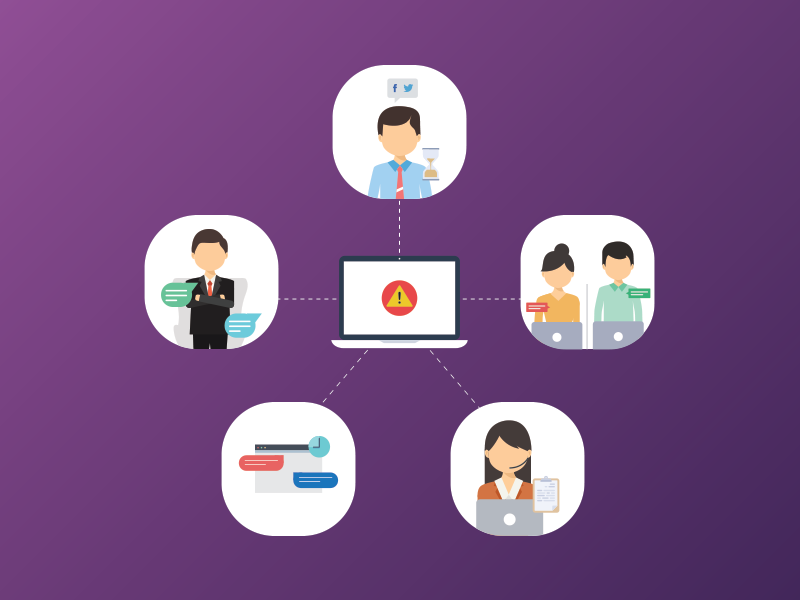 Generally, big brands tend to face a crisis due to circumstances both within and beyond their control. While the former refers to brands which mistakenly shot themselves in the foot, the latter concerns unpredictable scenarios.
Generally, big brands tend to face a crisis due to circumstances both within and beyond their control. While the former refers to brands which mistakenly shot themselves in the foot, the latter concerns unpredictable scenarios.
While Pepsi’s recent advert about protests with Kendal Jenner became popular for all the wrong reasons, Southwest Airlines faced an unpredictable technology malfunction resulting in nearly 2,000 canceled flights. In both scenarios, the brands got a major backlash on their social media channels. While Pepsi issued a single statement and took their advert down, Southwest Airlines’ customer team had to manage responses to the flood of complaints that came on their social media channels.
This helps understand that managing a crisis on social media, is just as important as handling offline i.e. real world. Practically, it only becomes simple and quick, if your social media agents are trained to handle the crisis effectively. This article contains a concise social media crisis management playbook for social media managers, who need to train their agents for it. Here is what all you need to do:
- Managing your resources: When your brand is facing a crisis, there would be volumes of posts coming on various social media channels. The most important factor here is having sufficient resources to manage responses for all those posts. Assigning each social media channel to one or more individuals helps in keeping the response time under control.
- Dividing your agents (BAU vs Crisis): A part of your team of agents must always be trained to handle responses during a crisis. This way, when a crisis erupts for your brand, you can calmly assign a portion of your team to manage crisis related responses. Your remaining team can continue managing responses business as usual.
- Training your agents: Well-experienced agents also need a refresher course of training during the crisis. Crisis is not something that a brand experiences every now and then. It is rare, but a turning point for your brand. This training can cover response and reporting strategies, which are generally used during a crisis.
- Using templates: During the crisis, most people ask the same set of questions to a brand. Hence, it makes sense to have a response template ready on the onset of the crisis. These would help to issue responses on time and pacify the concerns expressed by people on social media.
- Handling responses on CEO’s statements: CEO’s are known to issue a statement on behalf of the brand during a crisis. This is considered as a mark of responsibility and transparency on the brand’s part. However, their response generally attracts a considerable volume of comments from people online. Your agents need to be trained on the responses to be given on the reaction by the customers to the CEO’s statement or the press release that is out by the brand.
At the time of crisis, a brand’s response, through its press release and social media agents, speaks volumes of their preparedness for a crisis. The way you train your social media agents will determine how effectively your team will manage a social media crisis.
We have more such helpful pieces coming up soon. Like us on Facebook and Twitter.
